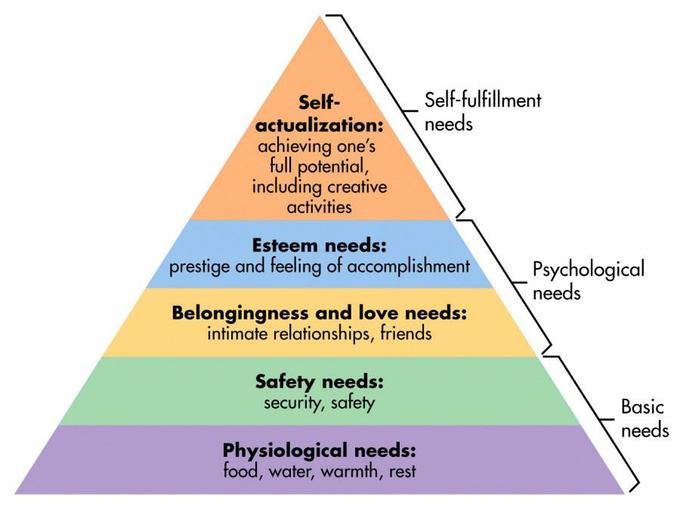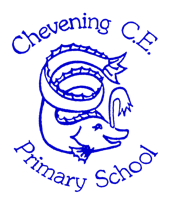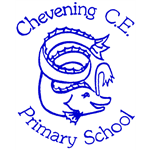Pupil Premium
What is Pupil Premium?
The pupil premium grant is funding to improve educational outcomes for disadvantaged pupils in state-funded schools in England. In the financial year 2023-24, pupil premium spending will increase to almost £2.9 billion.
In Chevening, we use a range of internal and external evidence of ‘what works’, including programmes and initiatives evaluated by the Education Endowment Foundation (EEF), to guide our effective use of the funding.
Funding details for 2023-24 (per pupil rate)
- £1,455 for pupils who are recorded as eligible for free school meals, or have been recorded as eligible in the past 6 years, including eligible children of families who have no recourse to public funds (NRPF)
- £2,530 for children looked after by local authorities, referred to as looked-after children
- £2,530 for children previously looked after by a local authority or other state care, referred to as previously looked-after children
www.gov.uk (Pupil Premium Information for Schools)
Is My Child Eligible for Pupil Premium?
All children at Key Stage 1 access a free lunch through the government's Universal Free School Meals Scheme.
This is different and separate from Pupil Premium Free School Meals (PPFSM), which provides funding for their education as well as free meals. Your child may be entitled to PPFSM if you get any of the following:
- Income Support
- Income-based Jobseekers Allowance
- Income-related Employment and Support Allowance
- Support under Part VI of the Immigration and Asylum Act 1999
- The guaranteed element of State Pension Credit
- Child Tax Credit (provided you’re not also entitled to Working Tax Credit and have an annual gross income of no more than £16,190)
- Working Tax Credit run-on - paid for 4 weeks after you stop qualifying for Working Tax Credit
- Universal Credit
If you are eligible for PPFSM, please make sure you claim them even if you have a Key Stage 1 child who already has a free meal. Claiming PPFSM means that a significant about of funding will be provided to the school's budget which enables us to provide the best possible opportunities and support of all our Pupil Premium children.
Your child's education will benefit if you claim PPFSM. You can do this online using the link below, or by talking to the school office.
Free School Meals
Your child might be able to get free school meals if you get any of the following:
● Universal Credit - your household income must be less than £7,400
a year (after tax and not including any benefits you get)
● Income Support
● Income-based Jobseeker’s Allowance
● Income-related Employment and Support Allowance
● Support under Part VI of the Immigration and Asylum Act 1999
● The guaranteed element of Pension Credit
● Child Tax Credit (provided you’re not also entitled to Working Tax Credit and have an annual gross income of no more than £16,190)
● Working Tax Credit run-on paid for 4 weeks after you stop qualifying for Working Tax Credit.
Some schools in Kent manage their own Free Schools Meals
application process. For more information, go to: www.kent.gov.uk/freeschoolmeals
Our Strategy annd Rationale for Pupil Premium Spending
In line with our Biblical Vision (Matthew 13: 31-32),
“The kingdom of heaven is like a mustard seed, which a man took and planted in his field. Though it is the smallest of all seeds, yet when it grows, it is the largest of garden plants and becomes a tree, so that the birds come and perch in its branches.”
our Pupil Premium Strategy and Plan have been developed being mindful of our aim to provide an excellent education through being
- True to Christ and His teachings.
- Known for kind and thoughtful actions and attitudes.
- Inclusive in serving, sharing and showing God’s love to benefit all.
Our primary goal is to ensure that our children leave us as well-rounded citizens, fully prepared for the next stage in their education. We want all our children to have the opportunity to flourish – to live well – and this is particularly important for any who are facing additional difficulties in life. Our use of Pupil Premium funding is aligned to our aim to ‘be true’; we look to make the best use of the funding by being inclusive - using it for children who are entitled to Pupil Premium funding and for others who are also disadvantaged. The funding is one lever to help us fulfil our goal. In addition to the official Pupil Premium funding, we also make use of other elements of the main budget, donations, or funding from the PTFA for different activities and approaches; this reflects our aim to be kind and thoughtful in all we do.
Looking at this in a little more detail we aim to ensure all our children:
- achieve as highly as they are able
- are academically prepared to thrive at secondary school
- find joy in success, be it academic, sporting, musical, artistic or another area
- are confident at building and maintaining positive relationships
- demonstrate kindness and respect to all people however different or similar they may be
- understand our school's values and why they are important
- have the beginnings of their own set of personal values
- have the self-esteem and self-confidence to make the most of their innate gifts and talents
To achieve these aims with our Pupil Premium children, we use the funding we receive in a variety of ways. Being a relatively small school some of the interventions we put in place are shared by children who are not in receipt of Pupil Premium in order to make the viable and promote good progress for all children as well as Pupil Premium children.
Many of our interventions are linked directly to the curriculum and, in particular, core subjects:
- We provide additional support through small group teaching, 1:1 teaching and in-class support to accelerate progress in all areas of English and maths, as it is widely recognised that attainment in these subjects underpins success across the curriculum at secondary school level.
- We provide technology and access to relevant computer programs which are proven to support learning in the above subjects and across the wider curriculum.
- We provide a range of strategies to support the development of a love of literature and reading.
- We provide regular and sustained forest school experiences for our youngest children with a key emphasis on developing speaking and listening skills, as well as social interaction and problem solving.
Alongside this academic input, we provide a range of interventions to address some of the issues children can experience in their early lives, which if ignored impact on their learning and success in the school environment. To understand the reasoning for these, it is helpful to look at Maslow's hierarchy of need.

This shows, starting at the base and working up towards the peak, the essential basic, psychological and self-fulfillment requirements for all humans. Where elements of this hierarchy are missing, the individual concerned will find it more difficult to fulfil their potential in life. As a school we work in close partnership with our families to ensure all our pupils have all the elements they need in order to achieve their potential. To this end, the school is sometimes able use funding, following careful consideration of individual circumstances, to benefit children in the following ways:
- Help with sourcing uniform
- Transport
- Funding for trips and visits
- Well-being support (via our Emotional Literacy Support Assistant)
- Mentoring and counselling
- Secondary Transition work
- Effective Communication interventions
- Additional music or sports provision
- Extra clubs and activities
- Early Morning Club/ Activ8
- Social skills workshops and friendship circle work
There is no expectation that all pupil premium children will receive identical support; indeed the allocation of budget for each child feeds into the school's budget for pupil premium, rather being ring fenced for an individual child. Some children will need more than others and each child is an individual with individual circumstances. The school considers how to allocate pupil premium money to different interventions and projects on an annual basis, following rigorous data analysis and careful consideration of the needs of the pupils within this group. We use information from the Education Endowment Foundation, NFER and OFSTED to research approaches and interventions which provide the best results and value for money. In addition we are part of local Partnership of Schools so we can collaborate with other local schools to consider and research effective interventions within the context of the Sevenoaks area.
Pupil Premium This Year

Pupil Premium Information Sept 2023
Background
The Pupil Premium is allocated to schools for children of statutory school age from low-income families who are known to be eligible for free school meals (FSM), to children who have been on the looked after register continuously for more than six months and to children whose parents are currently serving in the armed forces.
From 2013 this also included pupils eligible for FSM at any point in the last six years (known as the Ever 6 FSM measure).
Schools are free to spend the Pupil Premium as they see fit. However they are held accountable for how they have used the additional funding to support pupils from low-income families. Since September 2012 schools have been required to publish information online about how they had used the Premium. This ensures that parents and others are made fully aware of the attainment of pupils covered by the Premium and the extra support that they receive.
Our review of 2022-23 expenditure and outcomes and planned activity for 2023-24 can be found in the blue section to the right.
